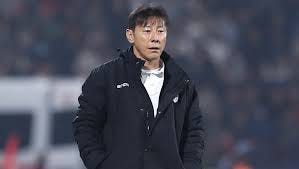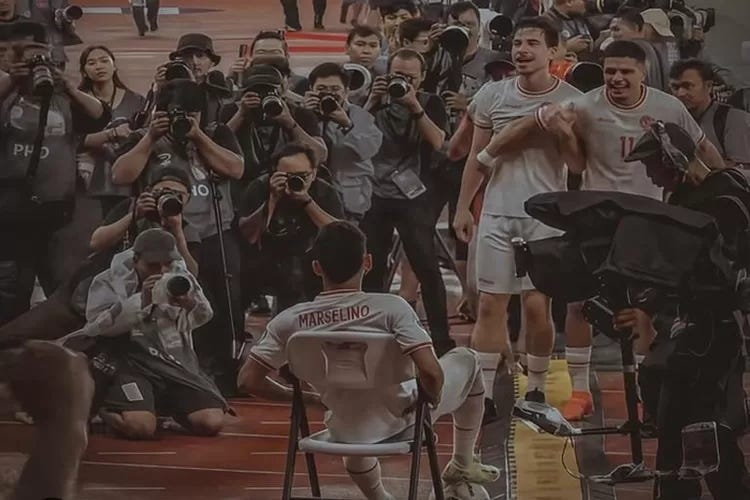Indonesia's Shin sacking shocking not surprising
Good results not enough for Shin Tae-yong as Indonesia look to Kluivert for World Cup dreams and more. The team and the culture have completely changed and now, so has the coach.
Indonesia’s decision to fire Shin Tae-yong as head coach on Monday made headlines all around Asia but while it was shocking given the success the South Korea has had, it was not a massive surprise.
The situation
After six games of the third round of qualification for the 2026 World Cup, Indonesia are third in their six-team group, just a point behind Australia. The top two go to North America automatically, third and fourth advance to the next stage. In short, there is a real chance of making it.
Shin, won the 2010 Asian Champions League and led his homeland at the 2018 World Cup, took the job in 2020. The improvements had been there for all to see. They not only qualified for a first Asian Cup since 2004 but reached the knockout stage for the first ever time last January. Weeks later, they beat Vietnam to get into the third round of World Cup qualification for the first time ever. It started with a draw against Saudi Arabia in Jeddah and a point taken against Australia in Jakarta. In November, the Saudis fell 2-0 in Indonesia in one of the biggest and best results in years.
The 2026 World Cup is within sight. Last June Shin was given a contract extension until 2027, co-signed by PSSI boss Erick Thohir, a business brought in to bring some modern business acumen and football political knowhow to what had been a crackpot organisation in the past. The pair seemed to have a good working relationship but there was something else in the background.
While the coach put faith in young players early in his tenure, there have been other, more noticeable changes in recent years, obvious to anyone with a pair of eyes and just a passing knowledge of the history of Indonesia’s national team. In the past five years, Indonesia have gone from being a Southeast Asian squad to one that looks European. Not even five years. The team has completely changed in the past 12 months or so.
Of the eleven that started in that famous 2-0 win over Saudi Arabia in Jakarta just a few weeks ago, just two –Marselino Ferdinan the man who scored both goals and Rizky Ridho– hail from the Southeast Asian nation. The others were born and raised in Europe, mainly the Netherlands, and have Indonesian heritage through parents or grandparents. From a team that has traditionally had little to no overseas experience, it is now in the opposite situation.
This is now largely a European team and more players are being naturalised all the time, which has obviously placed Shin into a tricky situation. This coach, in many ways a traditional South Korean one, has seen his job completely change. He had to manage a team full of European players, something he would never have bargained for and —knowing the coach a little —would more than likely not felt so comfortable with. English has been become more widely heard around training and meetings. Shin never spoke the local language, is not fluent in English either and needs translators. At least, the change removes Korean from an increasingly complex communication situation and makes an increasingly complex situation a little simpler.
“We are targeting to qualify for the World Cup and this is something we have been discussing for many months now, but the moment had to be right because right now we still have two-and-a-half months preparation for the next games,” said Thohir.
“We still have four matches left that we want to gather as many points from as we can. The dynamics around communication is one of the issues [we were looking to improve] but also we feel we need a coach who can improve the players tactically.”
Communication is one thing but the tactics are another. Thohir mentioned getting the players’ agreement, and there are rumours that some of the European-based stars made their preference to have a European coach known. According to rumours, not all were enamoured of Shin’s methods in the training field, in preparation and also around games. As more and more made their debut, such a change became more likely. For the PSSI, it was now or never, though fans do not agree with Shin’s popularity making the decision an unpopular one.
In comes, almost certainly, Patrick Kluivert. A star as a player, the Dutchman has had an underwhelming coaching career. Whether he has the ability to outperform Shin tactically remains to be seen but in terms of communication with the new-look team, there is little doubt that he will make a difference. There is also the hope that, going forward, he will help attract a better class of European-born player. As Indonesia get close to World Cups, there will be more interest from more players who are eligible to represent the country. Kluivert being there also makes it an easier sell.
Indonesia have become a European team, so getting a European coach is not a stretch. It is a gamble for Indonesia and for Shin Tae-yong, a reminder that football is a cruel game.
Vietnam
Shin’s compatriot –and former Seongnam Ilhwa Chunma teammate – Kim Sang-sik is in a very different position. Appointed to take over the Vietnamese national team last May, the former defender has the toast of Hanoi and Saigon. Millions of fans were on the streets on Sunday to celebrate the win over Thailand in the final of the ASEAN Championships. It was the first regional title since 2018 when another South Korean coach Park Hang-seo delivered.
Vietnam had a point to prove. The Golden Stars lost to Indonesia at the Asian Cup to crash out at the group stage last January. And then came back to back losses against the same team in the second round of World Cup qualifiers, and that ended Vietnam’s dreams of 2026. That it came against a team that Vietnam had seen themselves as superior to for years, made it more painful.
For now, all has returned to normality. Vietnam are top of Southeast Asia and Indonesia are making headlines off the pitch.






